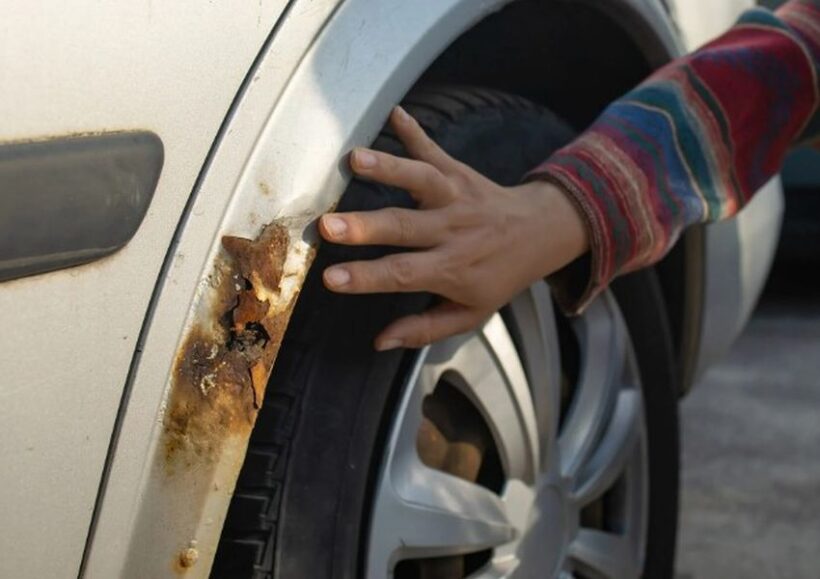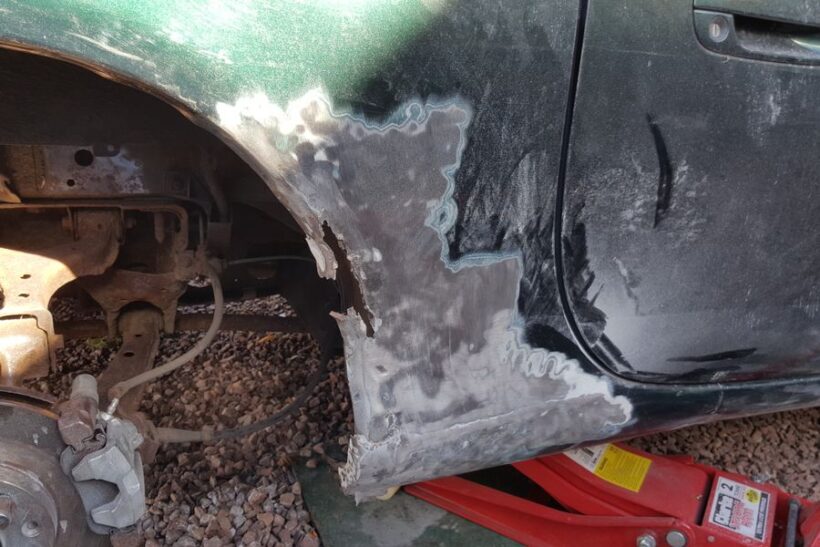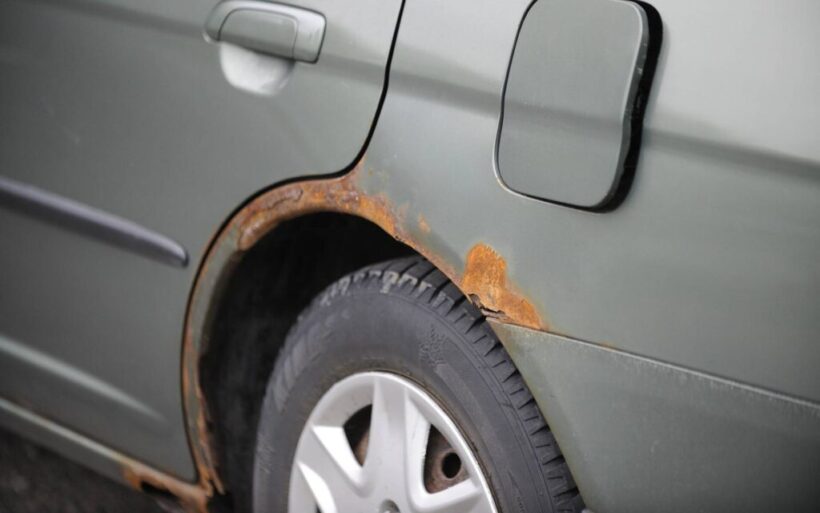As we delve into the world of automotive care, one aspect that remains crucial for the longevity of your vehicle is rustproofing. It safeguards your car from the detrimental effects of rust, thereby extending its life span. Today, we’ll explore the diverse methods of rustproofing, with a keen focus on underbody rust protection.
Why Rustproofing is essential
Rustproofing is an essential procedure that preserves the integrity of a car’s structure. It provides a protective layer that inhibits the formation of rust, a common yet destructive issue for cars. More importantly, rustproofing keeps the underbody of the car safe, which is often exposed to harsh conditions.
The Different Types of Rustproofing for Cars

There are several types of rustproofing available, each with its unique characteristics and application methods. Here we discuss the most effective methods.
Dripless Oil Spray
This method involves spraying a wax-based compound onto the car’s underbody. This compound hardens upon drying, forming a protective layer that prevents water and salt from reaching the metal surface. This is an excellent form of underbody rust protection that requires a professional hand for applications due to its permanent nature. To learn more about professional undercoating you can visit the Uniglass guide of rustproofing for cars.
Drip Oil Spray
The drip oil spray method involves the application of a thinner, less viscous oil that penetrates deeper into the car’s crevices and hard-to-reach areas. Although it’s a messy process and the car needs to sit for about 48 hours for the oil to drip off and dry, it provides comprehensive protection against rust.
Electronic Rust Protection
This method uses a small device that sends weak electric currents through the metal body of the car, disrupting the electrochemical reaction that causes rust. While the effectiveness of this method is a subject of debate, some car owners swear by it.
Tar-based Spray
Tar-based sprays are typically used for underbody rust protection. They provide a thick, durable coating that is highly resistant to abrasion and chipping. However, they are not as effective in penetrating nooks and crannies.
Rust Inhibiting Spray
These sprays contain rust inhibitors that react with the metal surface to form a protective layer that prevents rust formation. They are easy to apply and useful for covering small areas of the car that are susceptible to rust.
Choosing the Right Rustproofing Method

Choosing the right rustproofing method depends on various factors, including the climate, the vehicle’s age, and your budget. For instance, in regions with harsh winters and salted roads, underbody rust protection like dripless oil spray or tar-based spray can be highly effective. Similarly, for older cars with existing rust issues, a rust-inhibiting spray could be more suitable.
Conclusion
Rustproofing is a vital aspect of car maintenance that cannot be overlooked. The different methods offer varying levels of protection, but they all serve the primary purpose of preserving the integrity and longevity of your vehicle. With the right type of rustproofing, you can prevent rust, improve your vehicle’s durability, and ensure a smoother ride.
Professional Rustproofing Services vs. DIY Options
Professional rustproofing services offer several benefits. Firstly, professionals have the expertise and experience to thoroughly assess your vehicle’s rust-prone areas and apply rustproofing treatments effectively. They use specialized tools, techniques, and high-quality products to ensure optimal protection. Additionally, professional services often come with warranties, providing you with peace of mind and recourse if any issues arise.
On the other hand, DIY rustproofing options can be appealing for those who prefer a hands-on approach or have a limited budget. With a DIY approach, you have the flexibility to choose from a variety of rustproofing products available in the market. However, it’s important to note that DIY rustproofing requires careful research and proper application techniques to be effective. Without proper knowledge and skills, you risk improper application, which can lead to inadequate protection or even damage to your vehicle.
Cost is another factor to consider. Professional rustproofing services typically involve higher upfront costs compared to DIY options. However, DIY options may require purchasing tools and products, which can add up over time. Moreover, if rust breakthrough occurs in a DIY application, the cost of repairing the damage may outweigh the initial savings.
Ultimately, the choice between professional rustproofing services and DIY options depends on your comfort level, budget, and commitment to thorough research and application. If you have limited experience or want the assurance of expert knowledge and warranties, professional services are likely the better choice. However, if you’re confident in your abilities and willing to invest the time and effort, DIY rustproofing can be a viable option.
Frequently asked questions (FAQ)

What causes rust on cars?
Rust on cars is caused by a chemical reaction between iron, oxygen, and water. This reaction forms iron oxide, commonly known as rust. The reaction is often accelerated by the presence of salt, which is why vehicles in colder climates where salt is used to de-ice roads often rust more quickly.
Is rustproofing really worth it?
The necessity of rust proofing depends on various factors such as the climate you drive in, the terrain, and how often you drive. If your vehicle is regularly exposed to the elements, rust repair may make more sense.
Moreover, modern vehicles often use galvanized steel frames, which are less prone to rust. Finally, the decision to be rustproof should make financial sense, considering the value of the vehicle and how long you plan to keep it.
Can I DIY rustproof my car?
Yes, there are ways to DIY rustproof your car. Chris Fix offers resources on DIY car projects, including rust repair. It’s recommended to have some basic DIY skills before attempting such a task.
Please note, I was not able to find direct information on DIY rust proofing methods, nor could I find the specific course on Family Handyman’s DIY University. You might want to check their website for the most current and specific courses they offer.
What is the most effective rust proofing method?
The drip oil spray method is often recommended as the most effective rust proofing method because it can penetrate all the small nooks and crannies of the vehicle. However, it does leave oil drippings for about two days after application.

